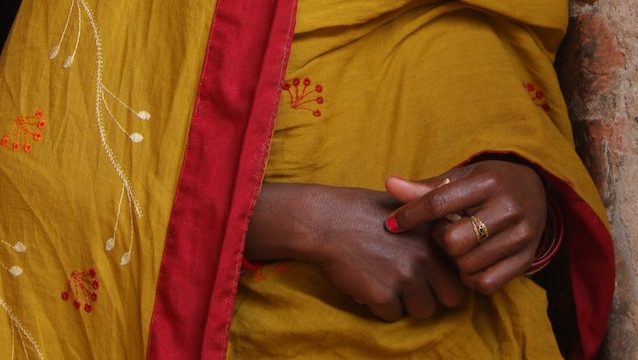“How long can I wait?”, said Priya. “Maybe I won’t go now even if they ask me to.”
Priya (not her real name) is one of 180 Bangladeshi sex trafficking survivors who were stuck in shelters in West Bengal. She was trafficked to a brothel in the east Indian state when she was just 15. It has been three years since she was rescued, but red tape trapped her and the other girls in India, waiting indefinitely for official clearance for them to go home to Bangladesh.
“Living in a shelter … can be traumatic,” said Tariqul Islam of Justice and Care, a charity that reintegrates victims in Bangladesh. “When they return after two years or more, it becomes hard for them to adjust to the changes and recover.”
Thomson Reuters Foundation reports:
Victims wishing to return home must first gain approval from police, social workers, judges, border forces and bureaucrats at both state and federal level, a process that involves about 15 steps, analysis by the Thomson Reuters Foundation has revealed.
While the two nations are working towards faster returns, the long waits facing dozens of survivors could stymie their efforts to start life afresh back home and leave them vulnerable to being trafficked again, according to activists.
In the last eight years, Bangladesh has brought home about 1,750 trafficking survivors from India, predominantly women and girls in West Bengal and the western state of Maharashtra.
However anti-slavery charities that help victims in India say most are kept in shelters for years – first awaiting the conclusion of court proceedings, then the repatriation process.
Justice is often slow and convictions are rare. One in four trafficking cases in India leads to conviction, while in Bangladesh, only 30 convictions have been secured under a 2012 law, with more than 4,000 cases still awaiting trial.
Officials from India and Bangladesh say they are close to finalizing a new system to streamline the repatriation of trafficking victims.
“A victim has to go through many layers to be repatriated from India,” said Ferdousi Akhter, joint secretary with Bangladesh’s interior ministry. “We are in talks to cut down these layers … victims can surely make faster returns.”
Fortunately, Priya is one of the lucky ones. After her interview with Thomson Reuters Foundation, she was able to return to Bangladesh after spending nine years in India. While she’s now in another charity’s shelter, she is due to go home to her family in the coming weeks.
“It feels really good to finally return,” said Priya. “I have forgotten what my house looks like, but I know that I will be able to recognise once I see it.
“I just want to go home and see my family.”







Freedom United is interested in hearing from our community and welcomes relevant, informed comments, advice, and insights that advance the conversation around our campaigns and advocacy. We value inclusivity and respect within our community. To be approved, your comments should be civil.
Time and time again you read about young girls trafficked to India for some form or other of slavery yet the thousands that get taken only a few manage to get home, and home could mean being shunned or judged by their neighbours,the same has happened to the Yazidi’s returning from captivity, the victim is blamed not the perpetrators who as a rule get off scot free.
Shamefull way to treat people. Would this system be organised by men, I wonder?